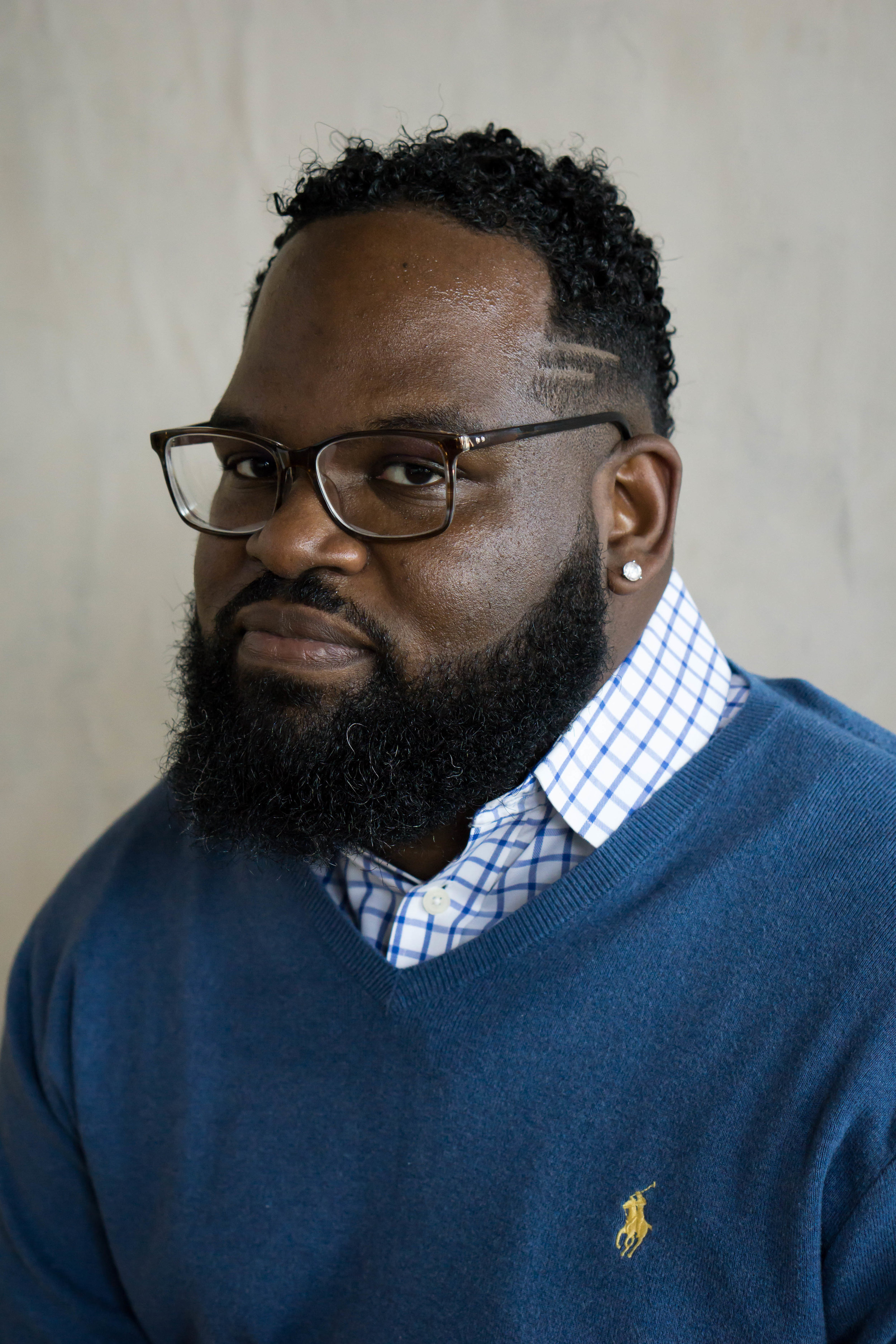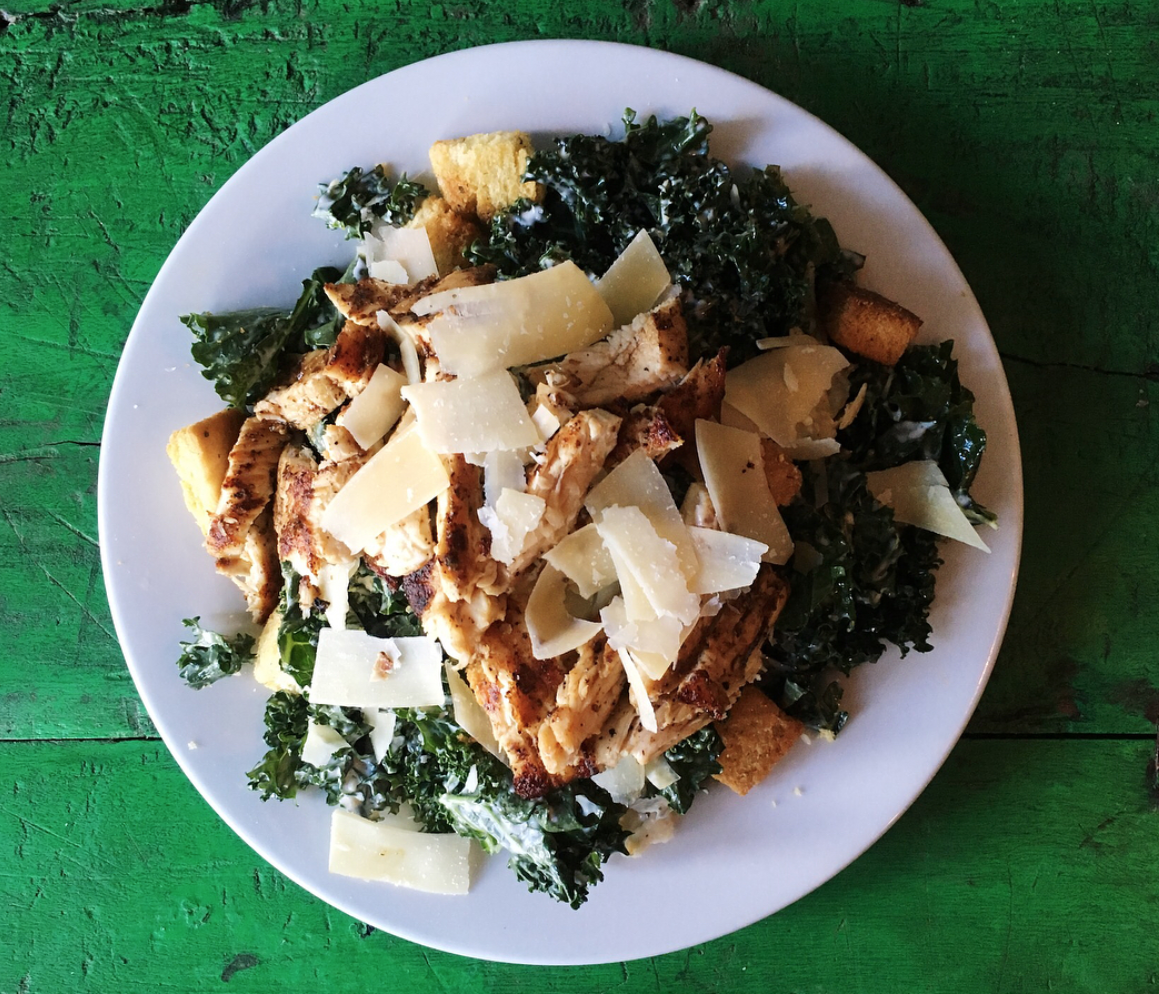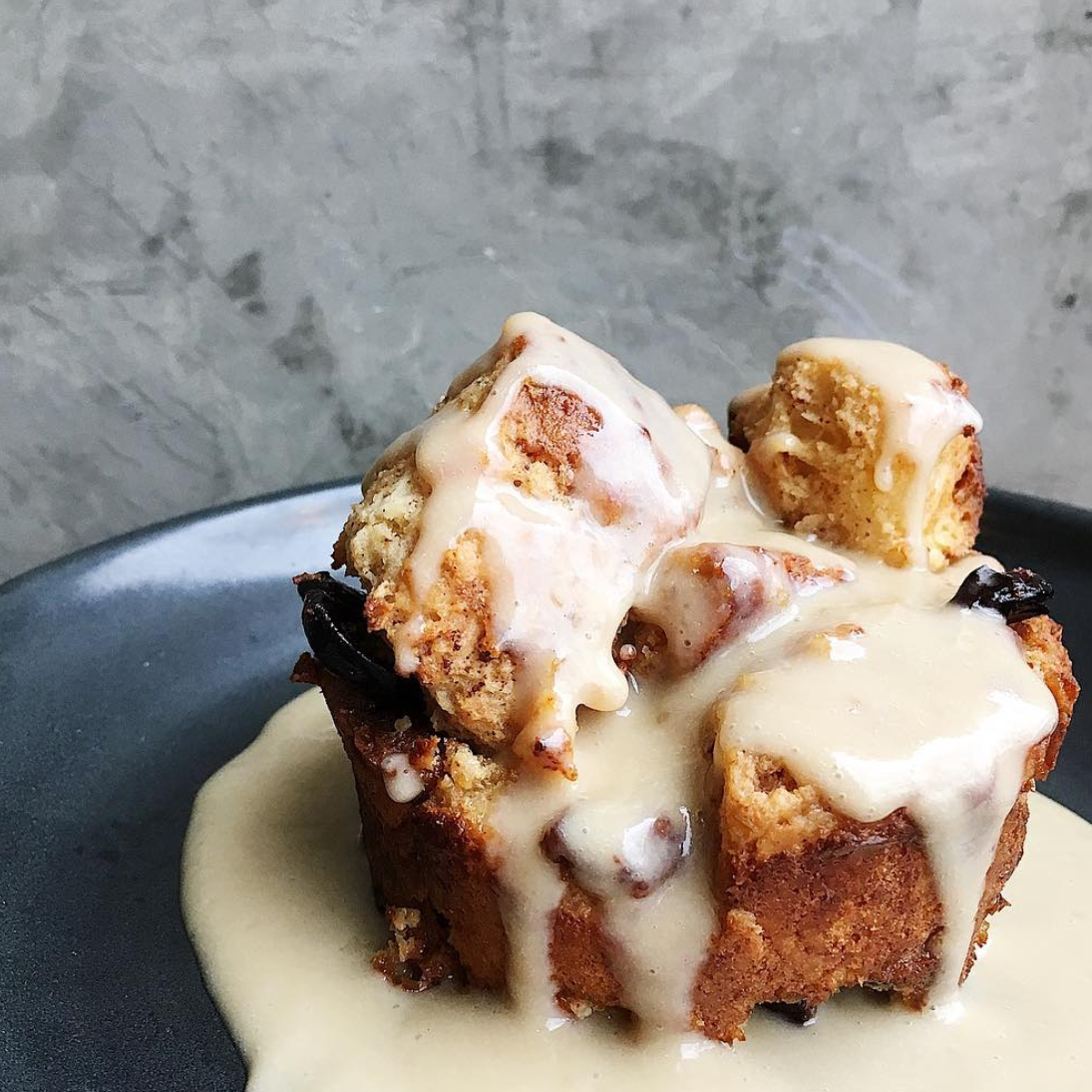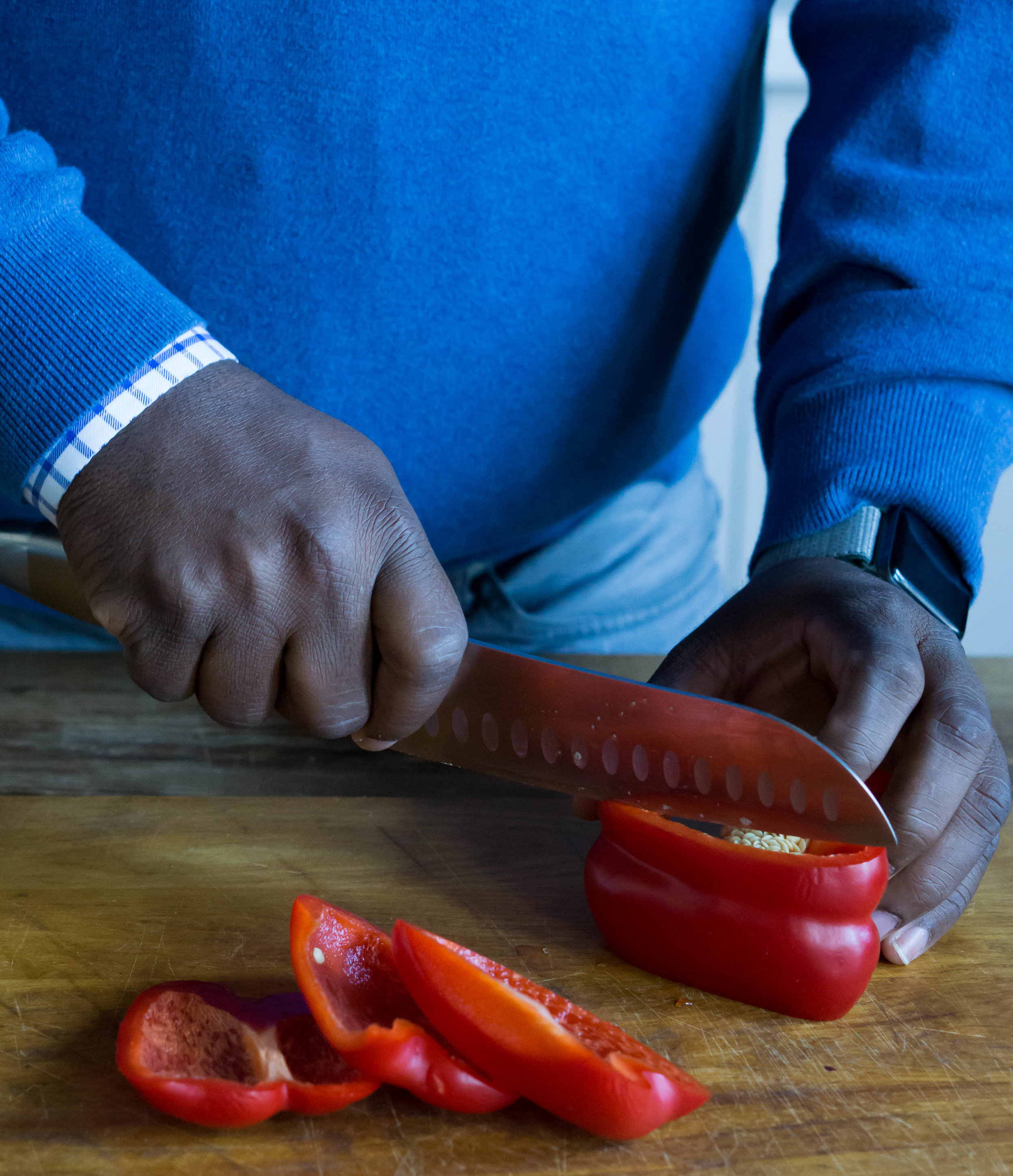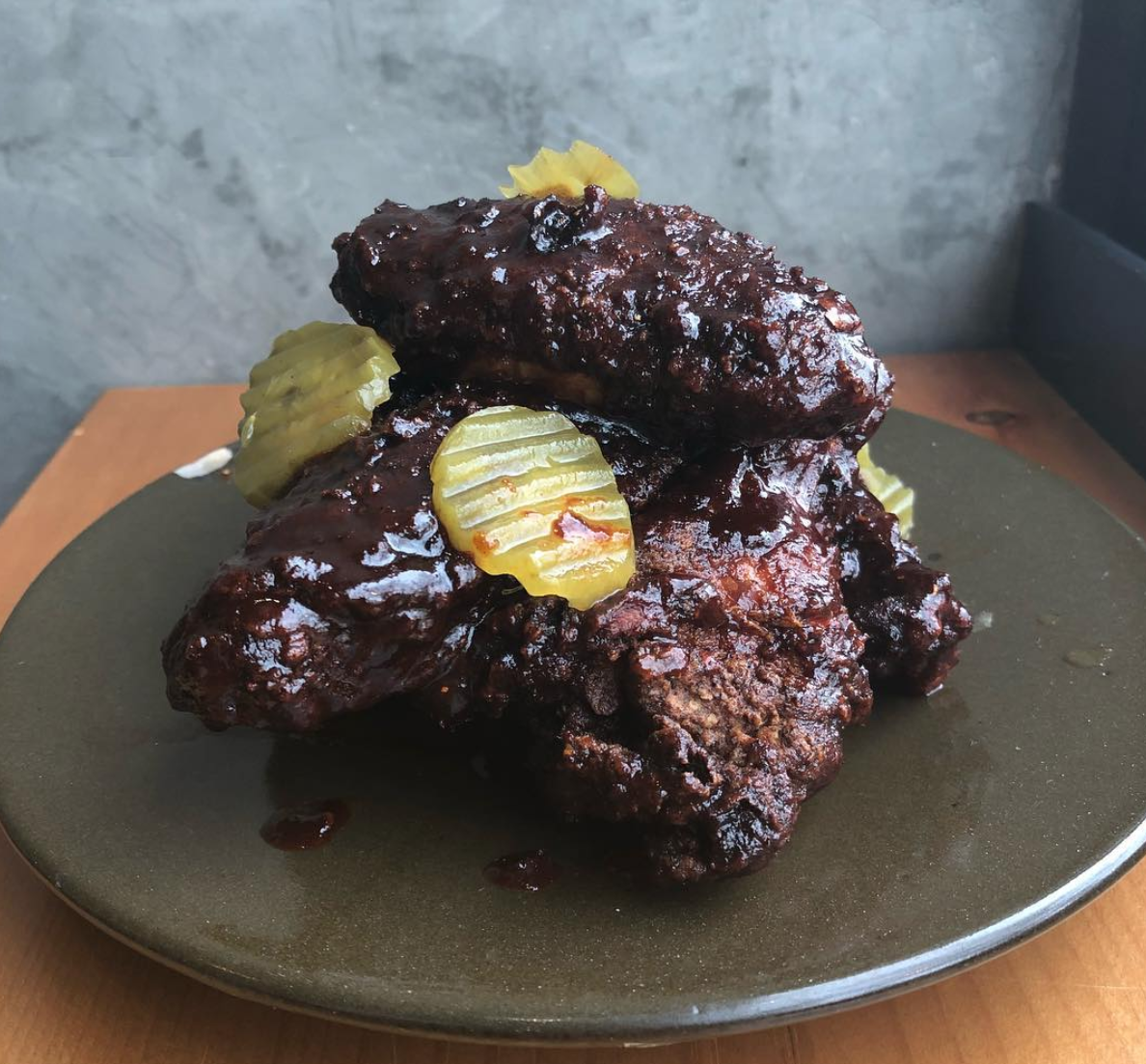Photography (Lamar): Alisha Sommer
Photography (food): Chef Lamar Moore/Currency Exchange Cafe
When chef Lamar Moore posted a photo of himself with the caption: “The face I give when I’m asked to cook a steak well-done,” to his 21,000 Instagram followers, he knew it would spark dialogue.
“My issue is did you try it differently,” Moore says of those in the well-done camp. He argues that one’s choice is often the result of exposure or lack thereof and he encourages, “Get your kids out of their comfort zones. Even if you tried it and don’t like it, cool, at least you tried it. And it’s like our kids are not trying things because we’re not showing them. Somebody had to show me things.” In his journey to become an executive chef Moore credits a village of people — from his grandmother and mother, to many male mentors — for exposing him to new things and developing him into the person he is today.
“I was a little chubby little kid watching my grandmother cook all the time. I never thought I’d make a career of it,” Moore says. His grandmother was the primary cook in his family and for many in their South Side neighborhood. Moore remembers seeing his grandmother taking care of lots of people, inviting them over for food and a conversation. And it was his grandmother who encouraged him to go to culinary school.
For a year and a half, Moore would take the arduous two-hour commute on public transportation from his home on the South Side to Cabrini Green to attend culinary school at Le Cordon Bleu at night, after working full-time as a line cook in the morning for the hospital where his mom worked. Moore graduated into one of the worst job markets in decades and had a difficult time finding work in the food and beverage industry in Chicago. While considering leaving the industry to become a police officer, he got the call to head west.
Moore accepted a position in California at popular seafood restaurant McCormick and Schmick’s. He recalls boarding Amtrak and moving from Chicago to San Jose with just a backpack, “I pretty much went to California blind just on a bag and a dream,” Moore says. “It turned out to be the best decision I ever made in my life from a career standpoint because when I walked through the door, I didn’t expect [my boss] to be Black and I was like ‘Yes!’ and then to be trained and mentored [by him] like I never thought [I would],” Moore says with gratitude. Moore’s new boss took the 21-year-old under his wings and welcomed Moore into his restaurant and his home. He mentored Moore on how to break down dozens of species of fish and seafood and taught him life lessons that left an indelible mark on Moore, “Personally and professionally he taught me how to be a man and a professional chef at the same time.”
“My grandmother used to invite people over to her house just to have a conversation and a cup of tea, coffee, a piece of cake. We don’t do that enough.”
During his eight years with McCormick and Schmick’s, Moore opened more than 40 restaurants throughout the U.S. and managed large staffs at high-volume locations. But upon learning that his grandmother had become ill, Moore moved back to Chicago to help care for her and also start his career back in his hometown. Moore would go on to work at Soldier Field (where he cooked for all-star athletes and President Barack Obama) and executive chef at independent restaurants across the city before branching out on his own.
Never one to let the grass grow under his feet, Moore is currently working on multiple projects including his own restaurant that will open in Denver in 2019, and a partnership with artist and fellow Chicagoan Theaster Gates — the project is an incubator at Gates’s community cafe and restaurant, Currency Exchange Café, serving Chicago’s South Side community. “The goal is to get them to get some hands-on culinary experience from an African-American and to cook well and say, ‘Now it’s been 3-6 months, you’ve trained well, you’ve worked hard. Here’s an opportunity to go work in a restaurant Downtown somewhere, I know somebody.’” Moore says, “For Black people in this industry, we have to support each other a lot more. We need to be more willing to give information. And talk about the things we don’t want to talk about,” Moore says. "My grandmother used to invite people over to her house just to have a conversation and a cup of tea, coffee, a piece of cake. We don’t do that enough."
The impact of mentorship on Moore’s life has been invaluable, “Meeting really good strong men that kind of helped prepare my life and my career.” And Moore has mentored hundreds of students through ProStart, a culinary program for youth, where he serves on its board, travels to schools across Chicago demonstrating cooking technique and recruits students for job shadowing. Each year he takes 10,000 students to the National Restaurant Association Show to bring awareness to the range of careers in the food and beverage industry. Going back to his well-done steak Instagram post, “We need to involve ourselves more with our kids. Exposure is huge.”
Moore has a tight network of chefs across the country. The Chopped alum knows good talent when he sees it and finds industry comrades who are Black being overlooked frequently. “As Black people, we don’t get a lot of the support that we should, we don’t get those national accolades, we don’t get the local accolades like we should, we have to create our own in order for people to know who we are,” Moore says. “When do we get to see a Black chef win a James Beard? When do we get to see one nominated?” Moore notes some of the well-known Black chefs he admires on the East Coast who have been recognized nationally like Marcus Samuelsson, JJ Johnson and Melba Wilson, but also reminds us that Bon Appetit voted Chicago “Best Restaurant City of the Year” in 2017 and zero Black chefs or restaurateurs were included in the piece.
Even still, Moore remains fervent about his work and offers aspiring chefs to take a page out of his playbook and follow the lessons he has learned over his decades in the food and beverage industry, “Be patient. You have to be able to put in the hard work. And don’t forget the person behind you.”
-Angela Burke, Winter 2018
Lamar Moore // Chef // Currency Exchange Cafe // @chef_ljm

